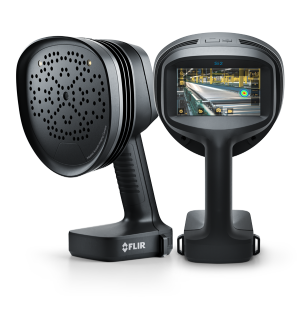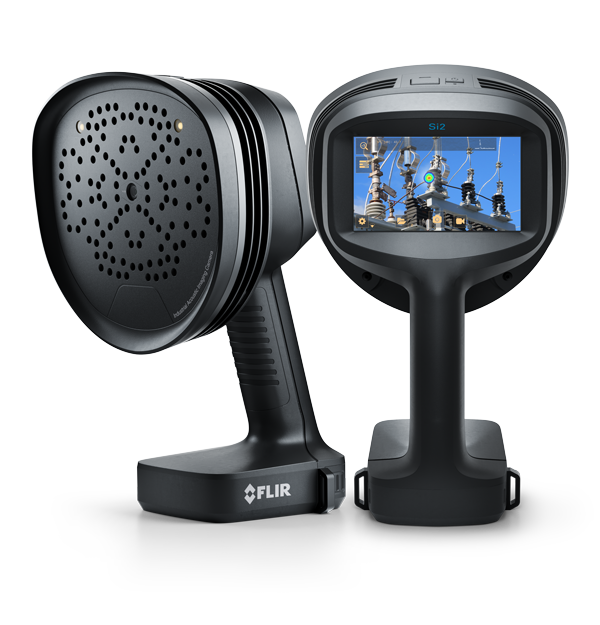
Condition Monitoring With a
FLIR Si-Series Acoustic Imager
![]()
FLIR Si-Series Acoustic Imaging Cameras
Compressed air leaks, specialized gas leaks, mechanical faults, and electrical partial discharges are all expensive system issues that consume power, leaving your company to deal with unforeseen costs and potential production/uptime issues. Ultrasonic imaging with an acoustic camera is an effective way to detect these equipment issues as part of a complete asset management plan. The FLIR Si-Series is your perfect solution for locating compromised areas in your compressed air systems, and for identifying partial discharge problems in high-voltage electrical systems. This lightweight, one-handed detector can help you in utility, manufacturing, and engineering applications to identify efficiency loss and potential failures up to 10 times faster than traditional methods—with minimal training.
Calculate the Si-series' ROI Request Demo
![]()
Key Advantages of Acoustic Imaging
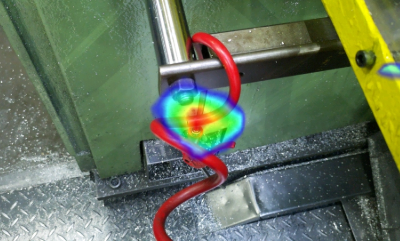
Compressed air leak detection
Finding the source of an air leak can be difficult and time-consuming with most tools, but our intelligent ultrasonic imaging detection equipment can make it quick and easy. FLIR Si-Series cameras provide leak rates and cost estimations at safe distances to help with leak detection and prioritize repairs to improve safety and save money.
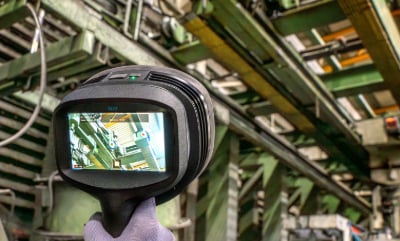
Detect Mechanical Faults
The Si2's MECH mode detects and measures the severity of bearing faults and other mechanical issues, before they lead to costly production disruption or safety hazards.
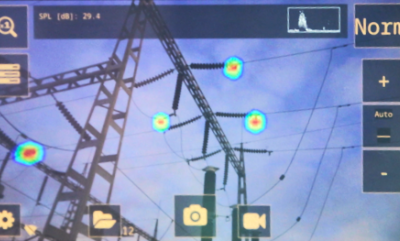
Detect Partial Discharge
Partial discharge (PD) indicates partial failure of an electrical insulator (can be a mechanical insulator, air gap, vacuum, liquid, etc.). Si-Series models use artificial intelligence to classify the specific type of partial discharge so you know exactly what to fix: surface discharge (typical with insulators, bushings, terminations), floating discharge (between components), and corona.
![]()
Why Choose a FLIR Acoustic Imager?
Effortless One-hand Operation
You can keep one hand free while inspecting components for operator safety and to reduce neck strain.
Superior Sound Detection with 124 Microphones
Si-Series cameras have 124 microphones, which can help you pick up very quiet noises from a long distance for acoustic imaging. This is especially important when inspecting high-voltage systems and their potential air leaks, which require a safe distance from the energized equipment. The force of a sound signal drops significantly as you move farther away from its source. The solution is to increase the number of microphones: quadrupling the number of microphones essentially doubles the sound detection range. They use optimized dynamic range to balance frequency capabilities with how far sound travels. You want your detectors to use the lowest frequencies possible to get the farthest distance.
Enterprise Scalability
Ensure optimal use and maintenance of equipment in large-scale industrial settings with fleet management, cloud data integration, and OTA software updates. Supporting software also brings the ability to integrate into data historians, reporting options over the cloud and desktop, and combining your IR and acoustic inspection programs. Si-Series users can also take advantage of the Organization feature; a user-friendly solution that simplifies the task of following up the reporting carried out in separate locations by different cameras and users.
Machine Learning Capabilities
The FLIR Si-Series uses machine learning to distinguish the other characteristics of the sound pattern created by leaks and PD from the background. It is the same way you distinguish between a harmonica and a bell playing the same note. Due to the large number of sensitive microphones combined with modern computer processing using machine learning, we are able to distinguish between the background noise and the defect-created noise due to properties other than frequency.
Calculate Your Return on Investment
See How it Works
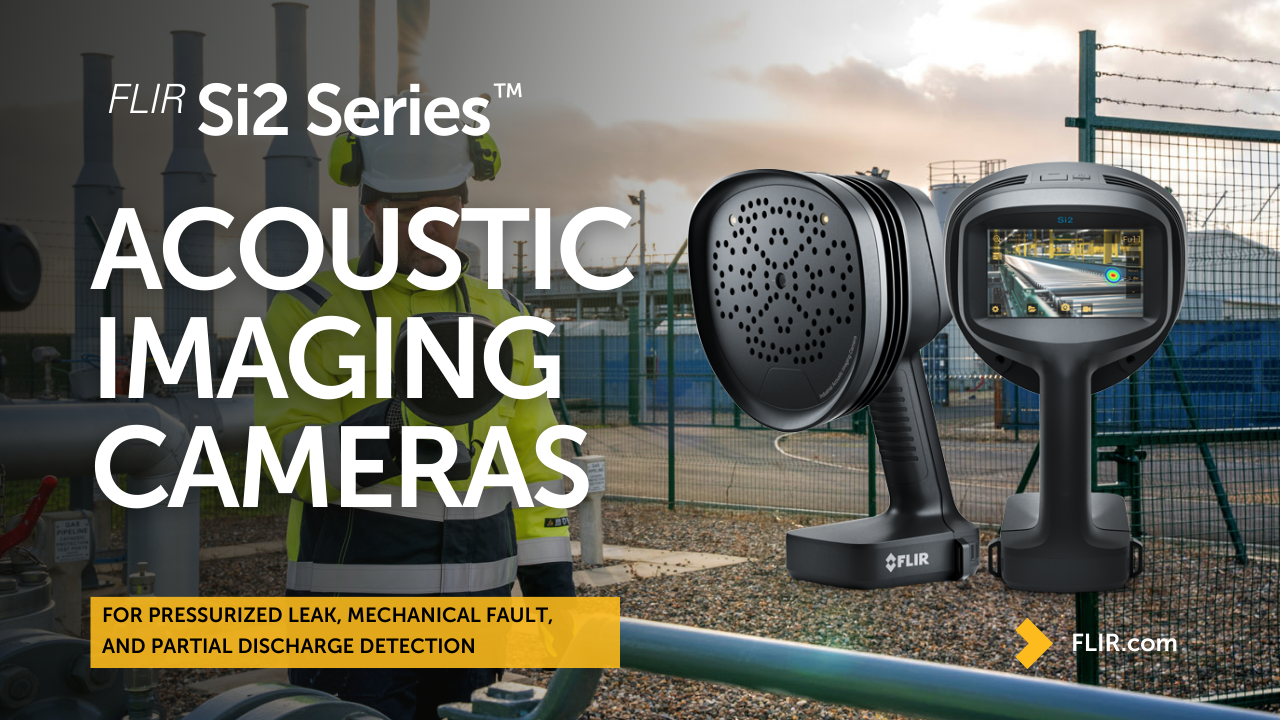
What To Look for In An Acoustic Imager
Effective Frequency Range
To ensure you’re choosing the right equipment, take a critical look at your camera’s frequency range. You might think that you need the widest range possible in order to pick up the widest range of sounds. However, in reality, the most effective frequency range for compressed air leak detection is between 20 and 30 kHz. This is because using the 20 to 30 kHz range aids in distinguishing compressed air leaks from the background noise in a factory.
Optimal Number of Microphones
In the pursuit of quieter noises, more is better. Acoustic imaging cameras typically employ dozens of micro-electric-mechanical system (MEMS) microphones to collect and characterize sound. While MEMS are small, use little power, and are very stable, they also generate their own noise that interferes with an individual microphone's ability to pick up very quiet sounds. The solution is to increase the number of microphones in use; simply doubling the number of microphones improves the signal-to-noise ratio enough to remove three decibels of unwanted sounds.
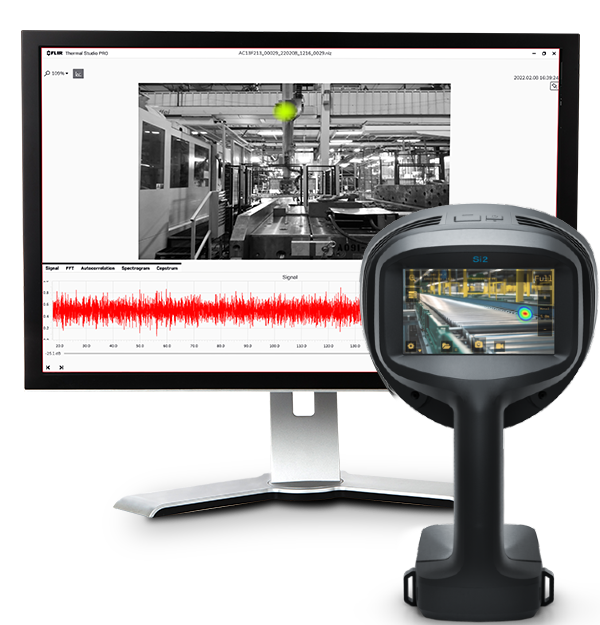
FLIR Thermal Studio Compatibility
The FLIR Si-Series Plugin for FLIR Thermal Studio allows you to import images from FLIR Si-Series acoustic imagers to FLIR Thermal Studio. Easily edit and analyze images, and create advanced reports. With the plugin, you have support for automatic fault classification, severity indication, recommended action for utility inspections, estimation of leak volume, and cost savings for air leaks. Combine acoustic images with thermal imaging from FLIR handheld infrared detectors such as the FLIR E8 Pro for water leak detection in the same report.
Choose the Right Si-Series Model for You
- Integrated Battery (no cords)
- Frequency Range: 2 kHz to 130 KHz
- Hard case and neck strap included
- Accessories available as additional options
- Free online software for analysis and reporting
- Compatible with FLIR Thermal Studio offline analysis and reporting software (free and paid versions available)
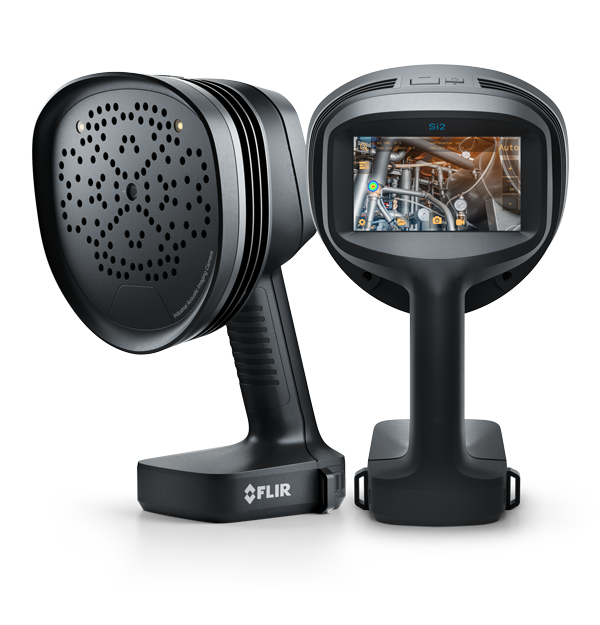
FLIR Si2-LD™
Industrial Acoustic Imaging Camera for Pressurized Leak Detection and Mechanical Fault Detection
View Product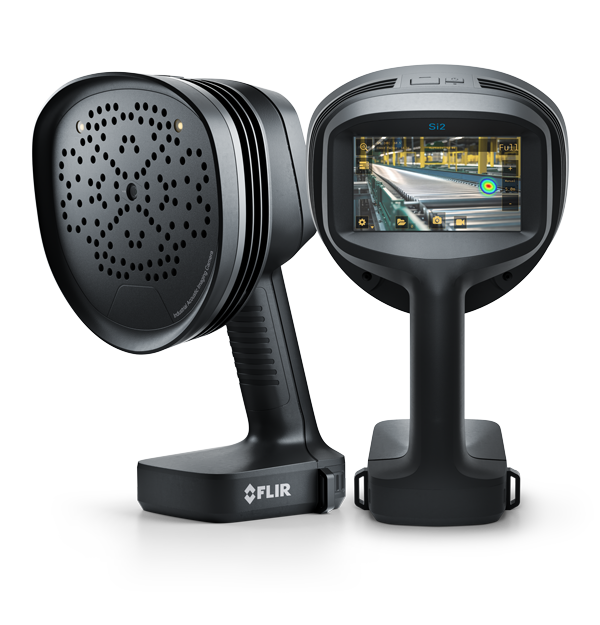
FLIR Si2-Pro™
Industrial Acoustic Imaging Camera for Partial Discharge Detection, Pressurized Leak Detection and Mechanical Fault Detection
View Product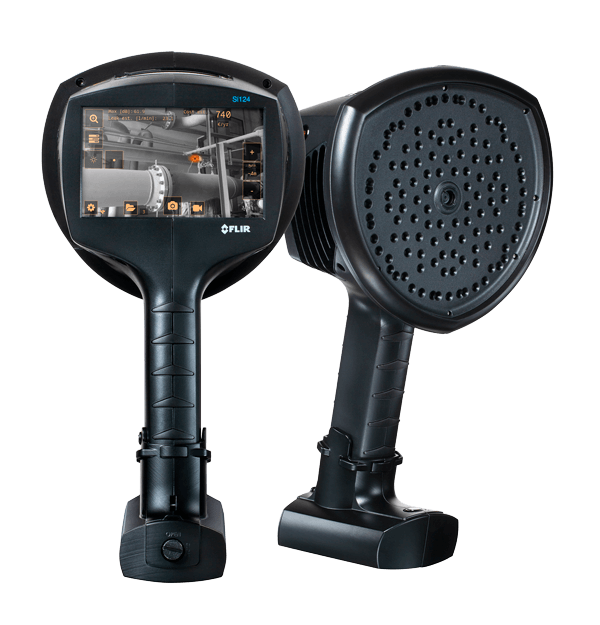
FLIR Si124-LD Plus
Industrial Acoustic Imaging Camera for Compressed Air Leak Detection
View Product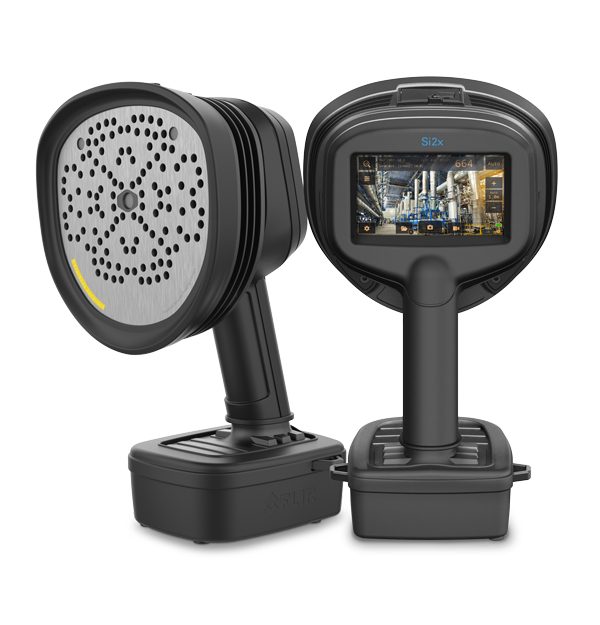
FLIR Si2x-LD™
Hazardous Location Acoustic Imaging Camera for Pressurized Leak Detection and Mechanical Fault Detection
View Product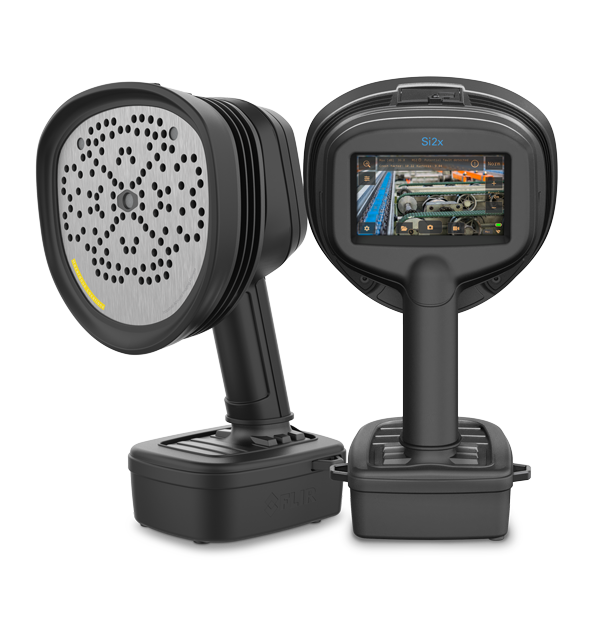
FLIR Si2x-Pro™
FLIR Si2x-Pro Hazardous Location Acoustic Imaging Camera for Gas Leak, Mechanical Fault, and Partial Discharge Detection
View Product
